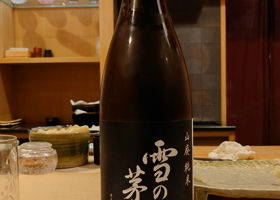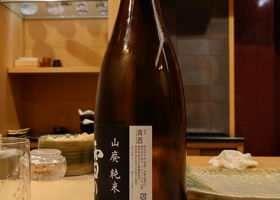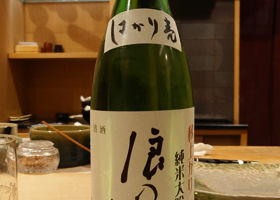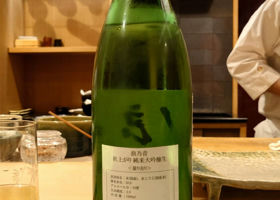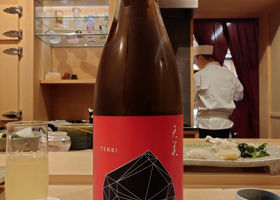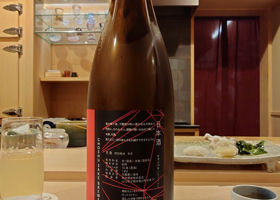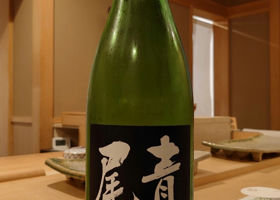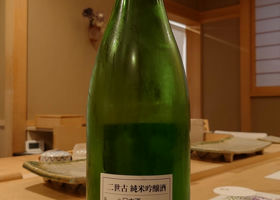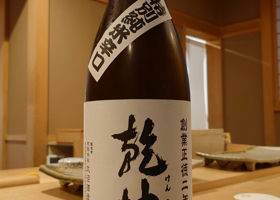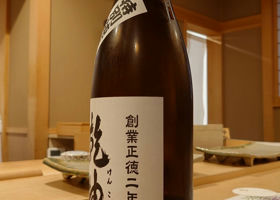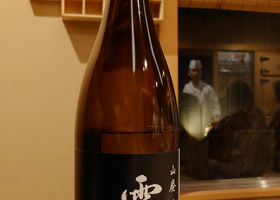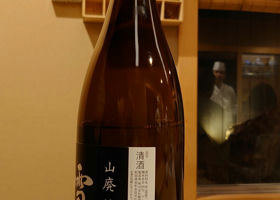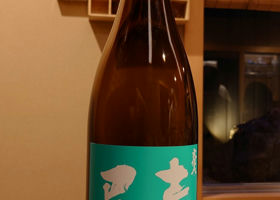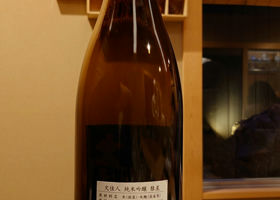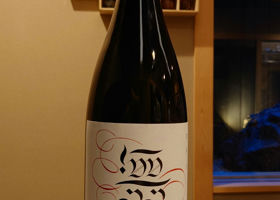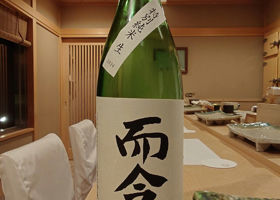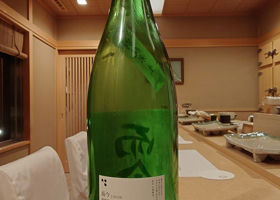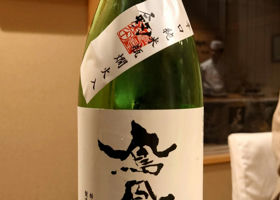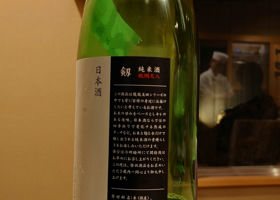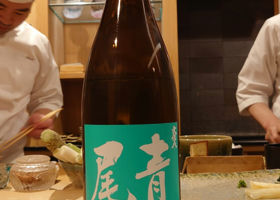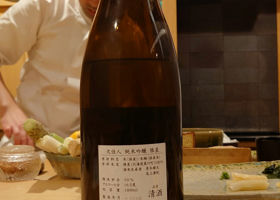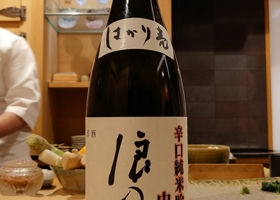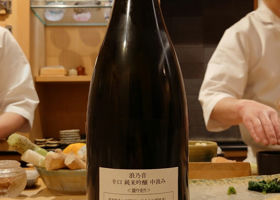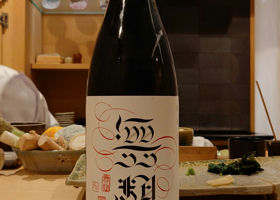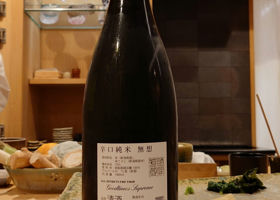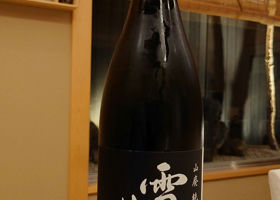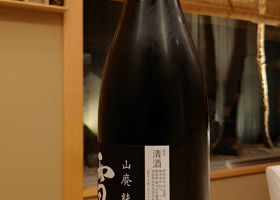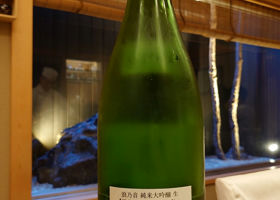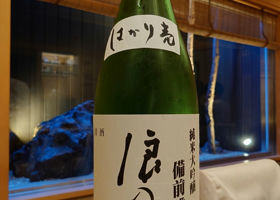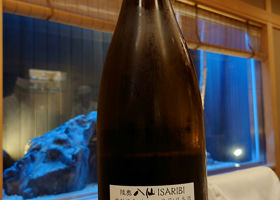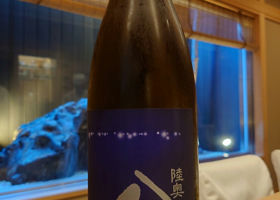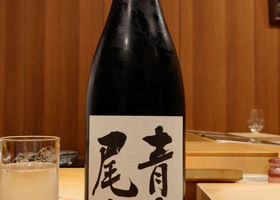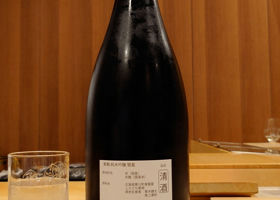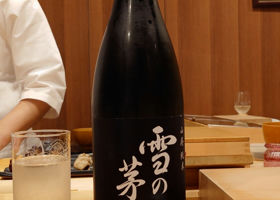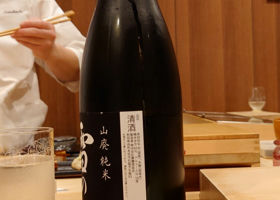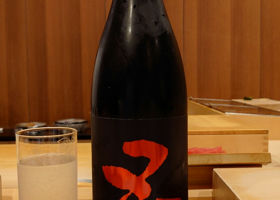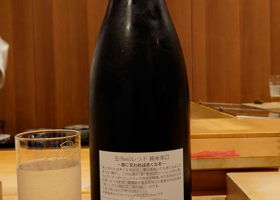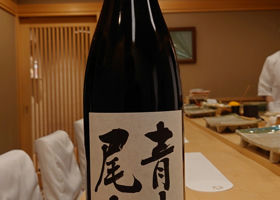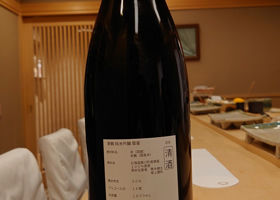Timeline
sikamaruThe last one is Yukino Kayasha Yamahai.
It is so stable that no explanation is needed any more. It is a monster that I can enjoy such a refreshing Yamahai, which I am not supposed to be good at, and it is distributed everywhere.
It is still delicious. sikamaruThe second drink is Nani no Oto, a familiar name at this restaurant. This sake is sold by the bottle, so it is not normally distributed. It is the best part of drinking outside.
The taste is very beautiful. It goes down your throat smoothly with a subtle taste and aroma of rice. It is a nostalgic sake that can take a break in the middle of a meal. sikamaruThis is my first spicy heaven.
I am a sweet person, so I rarely buy dry sake on my own, but this is a good choice.
I thought it would be plump because it is a junmai sake, but it is quite clean and fresh.
It is clear and easy to drink, and somehow has a nice sharpness. I guess that is why it is labeled "dry," but the impression is that it disappears quickly, rather than being overtaken by acidity and bitterness.
I think that is why it is called "Dry." Sake dryness is very deep. sikamaruThe second glass was Niseko.
This is my first time, but I drank this label before with Bunkajin.
Both Mr. Aoki and Mr. Onoe are rice farmers, but Mr. Onoe is said to be a former sushi chef. That's right, they make good sake rice.
The sweetness is not fruity, but rather the sweetness of the rice, but it is not harsh and refreshing.
Overall, it is fresh and goes well with sushi. sikamaruSushi and sake on the day you come back from overseas. It is light and dry without any spikes. The aroma is not strong and you can drink as much as you want. The minimal amount of sake that makes it taste good complements the food. ジェイ&ノビィGood evening sikamaru 😃.
Dry sake 🍶 and sushi 🍣 is just perfect 😋 but it's going to sink in after returning from overseas 😌. sikamaruGood evening, Jay & Nobby.
Akabu was sold for about 8,000 yen for a 4-goupe bottle. If you drink it at a restaurant, it will easily exceed 10,000 yen. I am glad I was born in Japan. sikamaruThe most beautiful tasting Yamahai, Yukino Kayasha.
Yamahai, for better or worse, has the flavor of old-fashioned sake, but this Yamahai has a modern, transparent Yamahai. (I feel like I'm saying the same thing over and over again.)
Musho, Bunkajin, and now Yukino Kayasha. The taste is rather close, but it has a fine characteristic, and it is a great match for sushi. I wouldn't be bothered if sushi restaurants in the world served only these three types of sake. (Well, but it would be boring...) sikamaruThe second cup of Bunkajin.
Compared to the first Musho, it seems to be more defined by its umami and acidity. The clear and refreshing impression is similar to that of dry sake, and goes well with red vinegar sushi.
This Aoki Ogami is probably not commonly available. I want a bottle at home because I can drink it all the time. sikamaruIf you want to pair it with sushi, it should be dry.
There are many kinds of dry sake, but I think that a clean taste goes well with sushi. I think it is good for Sushi.
Not too strong, not too weak. Not too sweet, not too spicy.
I think the best sake is the one that you can drink forever.
is ultimately the best sake.
However, there are also some sake that are so good that they are beyond belief. sikamaruJikin appeared unexpectedly.
It was delicious and tasty,
I had to have another one.
There is nothing more to say. ma-ki-Hi sikamaru, good evening.
If Jikin shows up unexpectedly, another glass is a must 😁✨✨.
I haven't had special junmai for a long time and I'm dying to drink it 😊. sikamaruGood evening, ma-ki-san.
Jikin is delicious no matter which one I drink, so I end up drinking as many different ones as possible. I wonder when I will be able to drink special junmai next. sikamaruSushi Restaurant in December.
Hououmida's sword is refreshing on the palate and has a very good balance of umami and sweetness.
It is both mellow and crisp, so you can enjoy both the deliciousness of the sake and the food during the meal.
It is a good example of how good balance can be said to be a lack of features, but if perfection is achieved, it will become a proper feature. sikamaruThis is also a well-known Bunkajin. It has a beautiful umami flavor and a light sweetness that quickly disappears. It has a good drinkability, so it goes well with all kinds of food. sikamaruThe second cup is Shiga Nani no Oto. This is another well-known brew at this restaurant. It is dry, but has a good balance of aroma and umami. If "dry" means sharpness, then this sake is definitely dry. I am not a fan of sake that sometimes tastes really dry. sikamaruThe first sushi of the year. Sake is from Musho. I don't buy or order dry sake myself, but the dry sake served at omakase is delicious. Of course, this is because the restaurant chooses saké that is not just dry and tasteless or a bit sharp tasting, but I guess it is different when I buy it myself and drink it at home. They serve it with the meal to begin with, but not at home. It is still hard for me to choose sakes that are labeled "dry. I want to be able to choose sake from more different angles. sikamaruSince I failed once with Yamahai, I am not very good at it, so I no longer buy it myself, but when I am told that this is also Yamahai, I have to change my mind. It has a very beautiful impression with a full flavor and gentle sweetness. It does not have the so-called "old-fashioned sake" character. I think I may have been wrong in my assumption about the traditional sake character. sikamaruThe second glass was Nami-no-one. It is a Junmai Daiginjo from Bizen Omachi. It is a beautiful sake with an elegant sweetness in a clean and refreshing flavor, just like a Junmai Daiginjo. Despite the impression of sweetness, it does not interfere with food, nor does it make you tired of drinking. This kind of sake is hard to find if you only look for it on your own. It was a real strike. sikamaruFirst sake at a sushi restaurant after a long absence. It's a little dry and refreshing, but it also has a lot of umami. It's a sake that makes you look forward to the meal to come. sikamaruThe last one was the well-known Comet Higashitsuru. The ginjo aroma was pleasant, and with the flow of the second cup, I felt it had a strong sweetness. Perhaps if I had drunk the first cup, my impression of the taste would be different. sikamaruThe second cup was Snowy Kayasha. Snowy Kayasha is so famous that I feel like I can buy it anytime I want, so I don't often buy it myself. It was like the Snow Kayasha, which is safe to drink at an izakaya or some such place if you are not familiar with it, but it is still delicious. I'm basically not a fan of Yamahai, but it's easy to drink, like a clear umakuchi. It is because it tastes good that it becomes famous and is distributed. sikamaruDry because I was with a drinker. five with a Z. It is dangerous because if it is dry and delicious, you will drink it like water. Yamaguchi sake is delicious. sikamaruThe second glass was the Azuma Tsuru, which we had previously enjoyed. It is clean and transparent, with a sweeter umami taste than the Ryuriki we had earlier. The complex yet simple taste seems to show the passion and careful work of the brewer. RecommendedContentsSectionView.title
